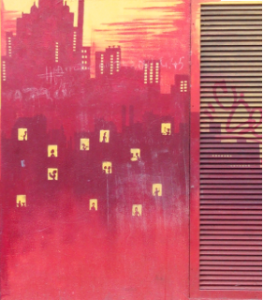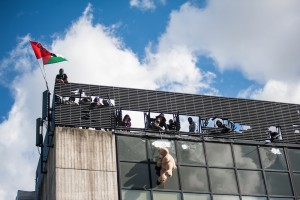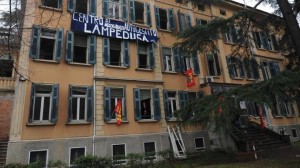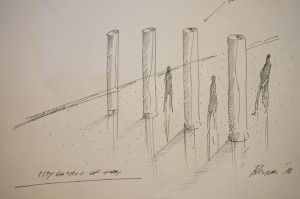So this is how the season of migrant occupations in Bologna finally ends: in utter silence.
After the spectacular evictions of ex-TELECOM and Via Solferino over the last two weeks, which -together with Atlandide‘s- was already considered a serious blow to the city’s autonomous movements, occupants have silently started leaving their rooms in via XXI Aprile, in the former dental clinic Beretta -fearing an imminent attack by the police. This means literally hundreds of migrants from Africa (Eritrea, Ethiopia and Somalia, Ghana, Marocco) and Europe’s new member states are left out in the streets.
In the heath of the moment, the Bologna city council -through the voice of its social councillor, Amelia Frascaroli– promised temporary accommodation for the 280 inhabitants of ex-TELECOM. But the transfer to Galaxy, a temporary outlet that costs the city council over 200.000 euro a year, has already caused rising protest by inhabitants who say it will bring criminality to the neighbourhood. In the midst of this chaotic transition, other migrants have preferred to travel on, testing their chances within the closing web of European asylum quotas. They organise their journey among the so-called transitanti, onward travelling migrants whose movement is tolerated -even facilitated- by some of Europe’s more lenient border police -a movement against which the Bologna city government says it cannot and does not want to agitate.
Bologna is of course not the only city that has had to deal with evictions over the last year. Similar actions have been taken in Milan, Turin and Rome in particular (some of them are reported on in this extensive blog). Even Churches don’t open their gates as easily any more, as this new report by Fabrizio Gatti reveals. The change of attitude in Bologna is intriguing because it appears to come primarily from the new head of police in town and his refusal to communicate with the city council on presumed security matters. Ignazio Coccia, who has a background in intelligence, special operations and anti-terrorism, already preordained his plans when taking position in April this year. He said Bologna is certainly a “complex city but I like tough challenges.”
When meeting Frascaroli in front of police headquarters last week, she told me “something has been broken.” Yesterday during a longer interview she explained that these broken ties simultaneously involve her relationship with police and Bologna’s social movements, where she herself emerged. Today’s situation in Bologna is exceptional in the sense that the national government and police are trying to show their muscle with respect to a model of negotiation that was to some extent unique, because it tried to implement coercion within a logic of the overall protection of individuals, she said. So in this sense the evictions have brought about a fracture at an institutional level, too. Rather than an open battle between political forces though -besides the attempt to create a grand coalition on the Left during the last few days in another social centre threatened with eviction, LABAS– it appears for now that the major blow has been suffered by the hundreds of migrants who have increasing difficulties getting a place to sleep, eat and make a living. With the winter knocking at the door, their lack of residency will certainly become one of the major problems ahead.




